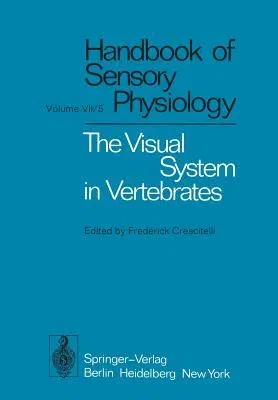The Visual System in Vertebrates (Softcover Reprint of the Original 1st 1977)Paperback - Softcover Reprint of the Original 1st 1977, 21 November 2011

Qty
1
Turbo
Ships in 2 - 3 days
In Stock
Free Delivery
Cash on Delivery
15 Days
Free Returns
Secure Checkout
Part of Series
Handbook of Sensory Physiology / Autrum, H.(Eds): Hdbk Sens.
Part of Series
Handbook of Sensory Physiology
Part of Series
Autrum, H.(Eds): Hdbk Sens.Physiology Vol 7
Print Length
815 pages
Language
English
Publisher
Springer
Date Published
21 Nov 2011
ISBN-10
3642664709
ISBN-13
9783642664700
Description
Product Details
Book Edition:
Softcover Reprint of the Original 1st 1977
Book Format:
Paperback
Country of Origin:
NL
Date Published:
21 November 2011
Dimensions:
24.41 x
16.99 x
4.19 cm
ISBN-10:
3642664709
ISBN-13:
9783642664700
Language:
English
Location:
Berlin, Heidelberg
Pages:
815
Publisher:
Series:
Weight:
1297.27 gm

